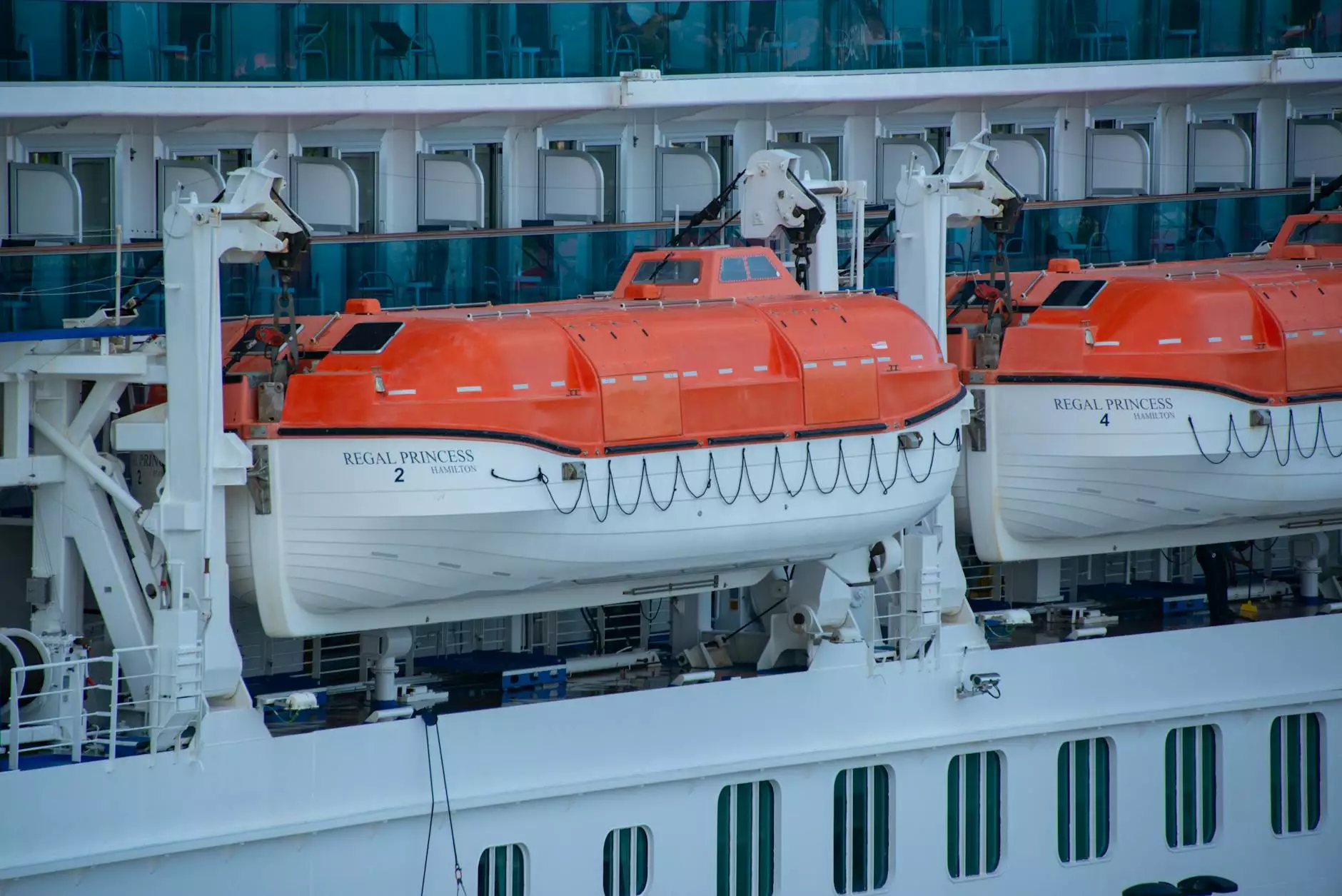Revolutionizing Refrigeration: The Future of Cold Chain Logistics

In today's dynamic business landscape, cold chain logistics plays a pivotal role in ensuring the quality and safety of temperature-sensitive products. Companies that operate in sectors such as pharmaceuticals, food and beverage, and biotechnology rely on reliable refrigeration equipment to maintain optimal conditions throughout their supply chains. By investing in robust cold chain solutions, businesses can enhance product longevity, comply with regulatory standards, and improve customer satisfaction. This article delves deep into the world of refrigeration equipment and how platforms like First Cold Chain are leading the way in this vital industry.
The Importance of Cold Chain Logistics
Cold chain logistics refers to the management of temperature-sensitive products through a supply chain that requires strict temperature control. This process ensures that products remain within recommended temperature ranges from production to the end consumer. The integrity of the cold chain is crucial for several reasons:
- Product Safety: Maintaining the correct temperature prevents spoilage and ensures the safety of food and pharmaceuticals.
- Regulatory Compliance: Many industries are subject to regulations regarding the storage and transportation of temperature-sensitive goods.
- Quality Assurance: A well-managed cold chain helps maintain the quality of products, which can significantly affect customer satisfaction and brand reputation.
- Cost Efficiency: Preventing product spoilage reduces losses and contributes to overall cost efficiency in operations.
Components of an Effective Cold Chain
Understanding the components of an effective cold chain is essential for any business aiming to optimize its refrigeration logistics. The key elements include:
1. Refrigeration Equipment
At the heart of the cold chain are the refrigeration systems. Choosing the right refrigeration equipment is critical for maintaining temperatures. Options include:
- Walk-in Refrigerators: Ideal for large-scale operations requiring significant storage space.
- Refrigerated Trucks: Equipped with powerful cooling systems to ensure a consistent temperature during transportation.
- Portable Refrigerators: Perfect for businesses needing flexible solutions, often found in catering and event management.
- Blast Freezers: Used to quickly freeze products, commonly used in food processing to maintain quality.
2. Monitoring Technologies
Technology plays a crucial role in monitoring temperature and conditions within the cold chain. Investing in advanced monitoring systems with real-time data collection can:
- Alert Managers: Provide immediate notifications if temperature deviations occur.
- Enhance Traceability: Facilitate tracking of temperature history for compliance and auditing purposes.
- Support Decision-Making: Allow timely interventions to prevent product loss.
3. Logistics Management
Effective logistics management ensures that refrigeration equipment is operational and that cold chain processes are efficient. Key considerations include:
- Route Optimization: Efficient routing can reduce transportation times, thereby minimizing temperature fluctuations.
- Staff Training: Employees must be trained in proper handling and inspection of temperature-sensitive goods.
- Inventory Management: Keeping accurate records of stock levels ensures timely replenishment and reduces waste.
Benefits of Investing in Advanced Refrigeration Equipment
As businesses increasingly recognize the importance of cold chain logistics, investing in state-of-the-art refrigeration equipment becomes essential. Some of the key benefits include:
1. Extended Shelf Life
By maintaining optimal temperatures, businesses can significantly extend the shelf life of perishable goods. This advantage reduces wastage and allows for greater flexibility in inventory management.
2. Increased Profitability
Minimizing spoilage directly contributes to a higher bottom line. Companies that utilize refrigeration equipment effectively can expect enhanced profitability and decreased operational costs.
3. Competitive Advantage
In industries where product quality is paramount, companies that deliver consistently superior products through robust cold chain practices gain a competitive edge. This advantage leads to increased customer loyalty and brand reputation.
Case Studies: Successful Cold Chain Implementations
To further illustrate the significance of cold chain logistics, let’s examine some successful implementations of refrigeration equipment within various industries:
Case Study 1: Pharmaceutical Company
A leading pharmaceutical company faced challenges maintaining temperature integrity during the distribution of vaccines. By partnering with First Cold Chain, they implemented a comprehensive cold chain strategy that included:
- State-of-the-art refrigerated trucks with real-time temperature monitoring.
- Trained logistics personnel dedicated to maintaining cold chain integrity.
- Regular audits to ensure compliance with industry standards.
This overhaul resulted in a marked reduction in temperature excursions, ensuring that vaccines reached healthcare facilities in optimal condition.
Case Study 2: Food Distributor
A food distributor operating in a competitive marketplace struggled with product spoilage. By investing in advanced refrigeration systems, they achieved:
- A significant reduction in spoilage rates by over 30%.
- Enhanced delivery times through improved route management.
- Increased customer satisfaction, leading to repeat business.
Future Trends in Cold Chain Logistics
The cold chain industry is evolving rapidly, driven by technological advancements and changing consumer demands. Here are some trends to watch:
1. Sustainability and Energy Efficiency
As environmental concerns rise, businesses are adopting more sustainable practices. This includes investing in energy-efficient refrigeration equipment and exploring alternative refrigerants that have a lower environmental impact.
2. Integration of IoT and AI Technologies
The Internet of Things (IoT) and artificial intelligence (AI) are playing increasingly significant roles in optimizing cold chain logistics. These technologies assist in:
- Predictive maintenance of refrigeration equipment.
- Improved data analytics for better decision-making.
- Enhanced monitoring and management of temperature-sensitive products.
3. Growing Demand for E-commerce
The rise of e-commerce has created a need for more efficient cold chain solutions. Retailers must ensure that products are maintained at the right temperature throughout the supply chain. As online shopping continues to grow, reliable cold chain logistics will remain vital.
Partnering with First Cold Chain
To thrive in a competitive market, businesses must embrace innovative solutions for their cold chain logistics. Partnering with First Cold Chain provides access to advanced refrigeration equipment and unparalleled expertise in managing temperature-sensitive products.
Our commitment to quality, compliance, and customer satisfaction makes us a trusted provider in the cold chain logistics industry. By leveraging our state-of-the-art technologies and industry knowledge, businesses can not only meet but exceed the expectations of their customers.
Conclusion
As the demand for cold chain logistics continues to grow, investing in quality refrigeration equipment has never been more critical. Companies that prioritize their cold chain operations will not only protect their products but also position themselves as leaders in their respective industries.
For further information on how to optimize your cold chain logistics or to learn more about our top-of-the-line refrigeration equipment, please visit First Cold Chain. Together, we can ensure that your products are delivered safely and efficiently, maintaining quality and safety every step of the way.
https://www.first-coldchain.com/





